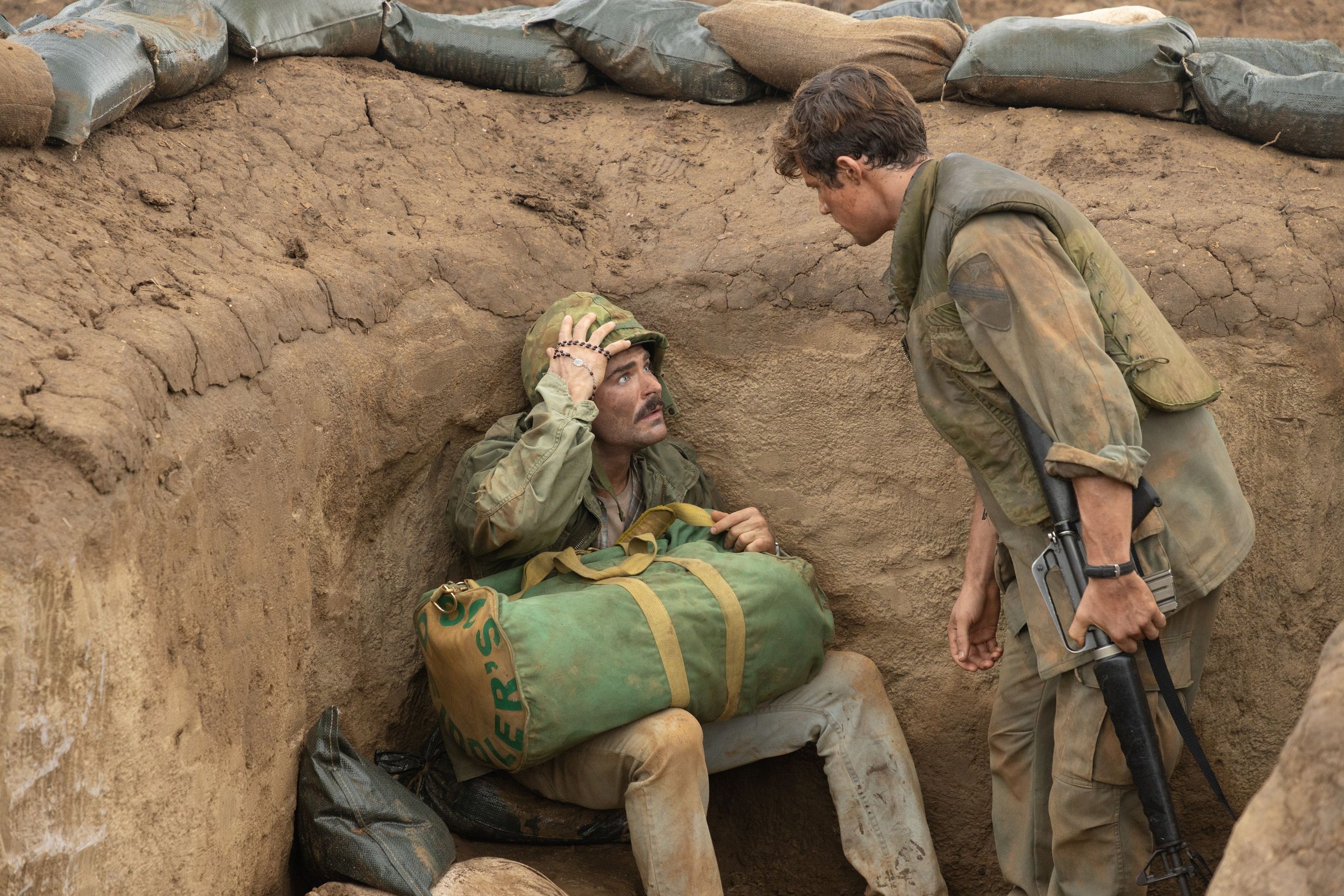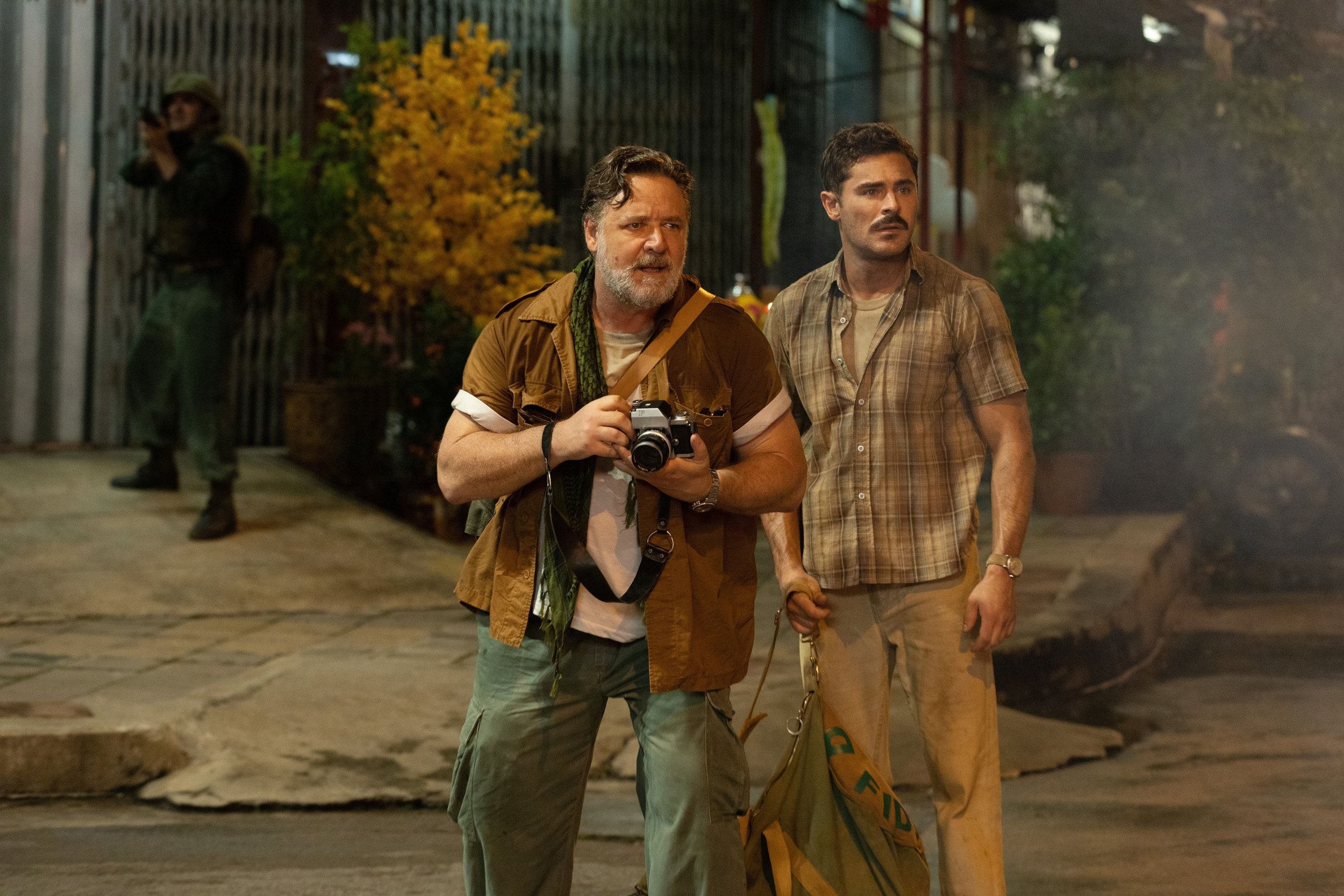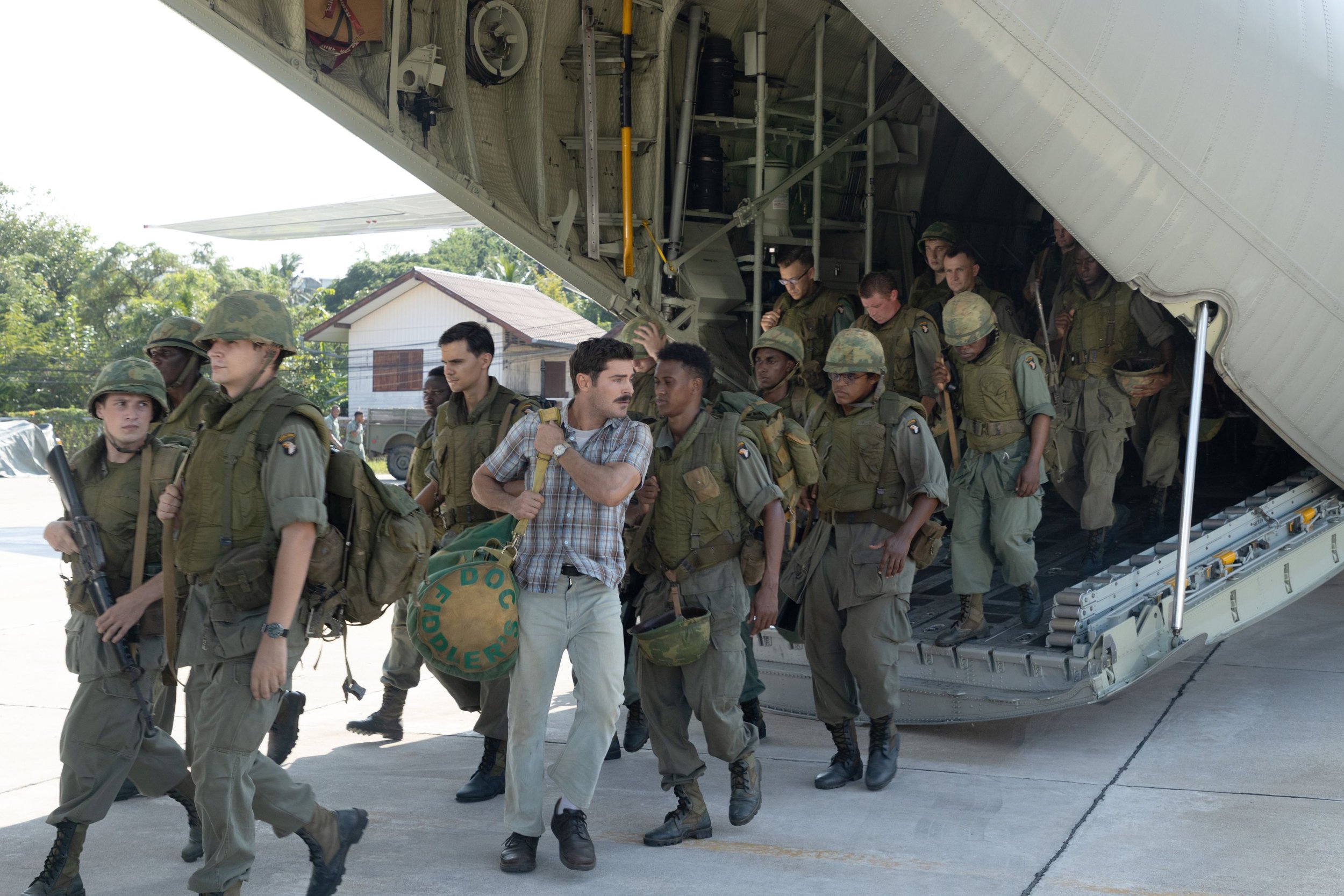MOVIE REVIEW: The Greatest Beer Run Ever
THE GREATEST BEER RUN EVER– 2 STARS
Like other semi-casual Vietnam war movies that have come before it, the action comedy journey of Oscar winner Peter Farrelly’s The Greatest Beer Run Ever streaming on Apple TV+ reaches a momentum where it has to switch gears. Inevitably, the happy-go-lucky circumstances have dissolved away to the honest truths and horrors of war. That’s a hell of a shift to pull off. The success of the movie boils down to when and how it executes or fails that course correction.
Based on the book of the same name written by former New York Daily News gossip columnist Joanna Molloy and John “Chickie” Donahue, The Greatest Beer Run Ever is about the wild true story of the latter’s four-month civilian excursion to Vietnam across 1967 and 1968. That’s a kinder way of saying how a 26-year-old barfly (Zac Efron) from the Inwood neighborhood of Manhattan was dared by his buzzed buddies and patriotic World War II veteran elder bartender (an extended cameo from Bill Murray) to take New York beers to their younger buddies serving overseas. The flighty goal was a show of support from a tight-knit urban community where families are close and the grief, funerals, and protests have increased to weary levels
Representing Doc Fiddler’s Pub and the entitled demographic of pro-war supporters of President Lyndon Johnson, Chickie Donahue would fill a duffel bag of Pabst Blue Ribbon pull-tab cans and use his Merchant Marine status to get a engine room job on a supply ship departing New York for Saigon. After scheming the captain to get a three-day furlough to disembark, here goes a non-military dude dressed in jeans and a short-sleeved button-up shirt thinking he can hitchhike his way through a scattered warzone and find guys’ names off his list.
LESSON #1: THE BEAUTY OF REFRESHMENT– Fans of tasty adult beverages know the draw and appeal here with a “beer run.” When you’re the person of your friend circle tasked with hunting for the unattainable and leading the charge of satisfying a longing craving, you’re the borderline hero for lifting the mood and igniting the party. You’re the bringer of refreshment and, in Chickie’s case, a human postcard that hands a warrior friend a “good old American beer to let them know what they are fighting for.”
LESSON #2: THAT’S THE DUMBEST THING I EVER HEARD– Folks, the preposterousness of The Greatest Beer Run Ever is quite real, and every side character encountered by Efron’s Chickie audibly reminds us of that fact every chance the script allows them. The repetitive reaction questions like, “What the hell are you doing here?” and “You chose to be here?” pile up. Beer is great and all, but, one soldier may have put it best when he counters with a mug of reality to say “a goddamn beer is supposed to make it all OK?” When the men and their superiors hear it was because of a dare, the eyerolls get worse.
LESSON #3: THE VALUE OF A NOBLE GESTURE– Underneath the initial laughter and disbelief is the noble gesture core of what Chickie Donahue achieved. A warm and likely shook-up beer from home might seem like an item of low value, but the shared solidarity and personal presence behind the symbolic beverage offerings hit well when neighbors meet again in the most unlikely places. Combine the brave risks taken by Chickie to make the reunion moments happen and these deeds now matter more in support than the ale or lager itself. The strengthening hugs shared after those beers are empty and friends part ways again with hopes towards their shared home prove that importance mightily.
In those disarming moments between friends, The Greatest Beer Run Ever indeed has its appealing feel-good charm. Zac Efron is affable enough as an actor to pull off this borderline blockhead juiced by a sense of duty and honor. He plays up the enthusiasm of this quest, and who wouldn’t want to share a beer with Zac Efron? The buddies he finds, played by Jake Picking (Top Gun: Maverick), Kyle Allen (The Map of Tiny Perfect Things), Will Roop (The Way Back), and Archie Renaux (Morbius), thankfully never portray the same soldier. Each gives their unique assigned slice of the true Vietnam War experience to the lead character having his eyes opened.
Reaching this revelatory mindset brings The Greatest Beer Run Ever back to the tone shift that had to arrive. When director Peter Farrelly and his fellow Green Book Academy Award-winning screenwriter Brian Hayes Currie, along with a polish from Pete Jones (Hall Pass), break away from the deeper chronology and honorable actuality of Molloy and Donahue’s novel, the movie falls apart gradually. Gravity and seriousness were needed, and these were not the men to provide that properly.
The missing ingredient to that properness, as crazy as it sounds in a story this zany, is the truth. The novel is chock full of engaging and poignant encounters–noble gestures and all–in spades. Flexing dramatic license, The Greatest Beer Run Ever trades those detailed accounts for loony screenwriter inventions and a rushed narrative pace that presumably would make the Chickie Donahue yarn more cinematically compelling. Instead, they poke holes in believability and take away chances for the adventure to truly linger as it did in real life for these men.
The Greatest Beer Run Ever makes Donahue’s trip and the entire Tet Offensive look like a dangerous Spring Break weekend bender of dumb luck successes and heroic conveniences. The real Chickie spent over four arduous months in Vietnam finding his old friends, making new ones, appreciating local customs, holding down jobs, surviving guerilla warfare, and lending his resourceful union-trained dockside acquisition skills to supply hotels, restaurants, local residents, and even abandoned zoo animals with life-saving stockpiled food. Now that’s a grander story to tell than what is here.
Moreover, the real John Donahue was a savvy veteran with extensive international experience, sailing the world three times over, including previous stops across Asia. He is not the boomer doofus always fixed to a barstool the movie reduces Zac Efron to portray. For what could only be a move for marquee clout, Farrelly employed a tired Russell Crowe to play a war correspondent composite character found nowhere in the book. The actor’s caliber (and our time) is wasted on him speaking little bits of ominous insight and delivering backhanded compliments to a lead character adept enough on their own.
Somewhere, Farrelly and company thought audiences would not buy the integrity and scope of a solo artist story without injecting pretend dangers. The real ones Donahue survived were more than plenty, and that’s entirely a miscalculation of trust. For example, rather than respectfully including or positively representing fuller Vietnamese characters in the movie that were vital in the book, The Greatest Beer Run Ever kills off two of the three indigenous characters you spend any time with in falsified fashions of ambivalence or cruelty. Thank goodness there wasn’t a forced love interest to smear this story further.
By choosing such flippant and unnecessary storytelling inventions that favor theatrics over honesty, The Greatest Beer Run Ever says nothing new. Even with the rowdy beer premise, we’ve watched uninformed citizens or fringe participants have their hearts changed by war. We’ve seen dominant privilege brought down a peg by tragedy and white guilt become momentarily wiser. Farrelly’s movie softly pushes those repetitive messages that have been done better elsewhere, making The Greatest Beer Run Ever 30 years late in its relevance and topicality.
LOGO DESIGNED BY MEENTS ILLUSTRATED (#1070)





